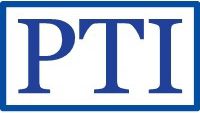
by Dan Celebucki, PTI Lead Trainer
There are essentially two types of work that organizations and people within organizations perform: process work and project work. Process work for the organization includes ongoing operational work (order taking, production, shipping & receiving, billing and accounting, maintenance, daily startup and shutdown activities). For the individual, process work includes daily tasks such as responding to emails, attending meetings, and completing the technical tasks associated with a role’s duties and responsibilities in support of ongoing operational processes.
Setting aside the hybrid of continuous process improvement, project work is generally how organizations and people effect change or create something new. Whereas process work is ongoing and repetitive, project work is temporary and unique. Projects are undertaken to develop, improve or retire products, services or supporting processes. Projects are launched to relocate, reorganize, scale up or scale down an organization. Projects are initiated to create or implement a new strategy, tactic or tool.
Since organizations and people need to adapt and improve, projects are an essential change vehicle and therefore project management is an essential discipline. Every organization and individual can get better at project management and for most there is vast room for improvement. Given this reality, project management training is an investment that can provide large returns. Even better, the ROI from project management training is ongoing.
By providing the knowledge and skills to effectively manage a project, project management training helps individuals become better stewards of resources. Trained project managers are then able to accomplish more, faster, and at a lower cost.
Upon completion of a good project management training course, a student will be able to:
- Determine an appropriate approach to managing a project.
- Ensure only requirements that support a project’s high-level objectives are accepted.
- Identify and consider a project’s key constraints and risks when conducting project planning so that plans are achievable.
- Leverage appropriate tools and techniques to assist in the management of projects.
- Engage stakeholders appropriately to benefit the project.
Far too many project managers learn lessons the hard way, which can cost their organizations dearly in time, money, morale, and reputation.
Project management training courses have a proven ability to expedite a project manager’s acquisition of the knowledge and skills needed to deliver successful projects.
